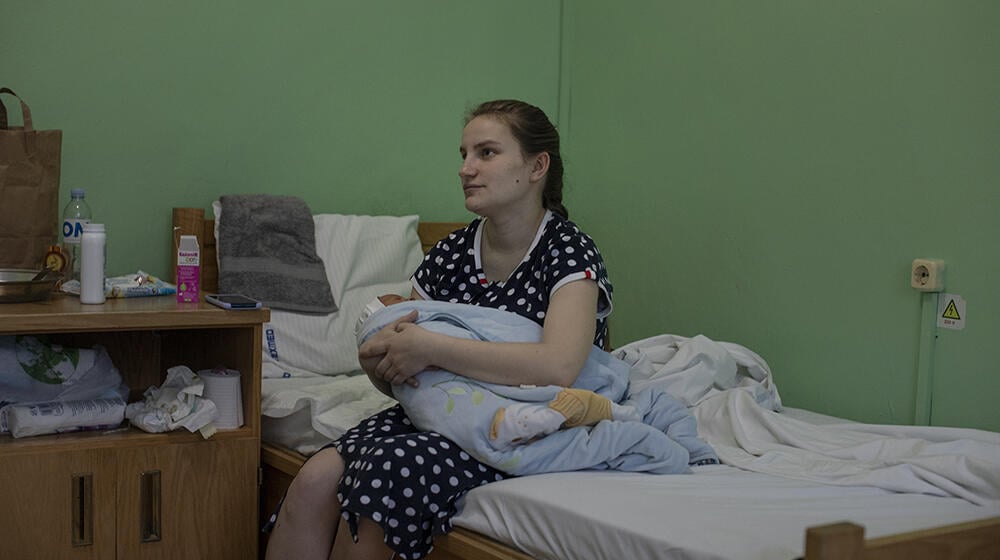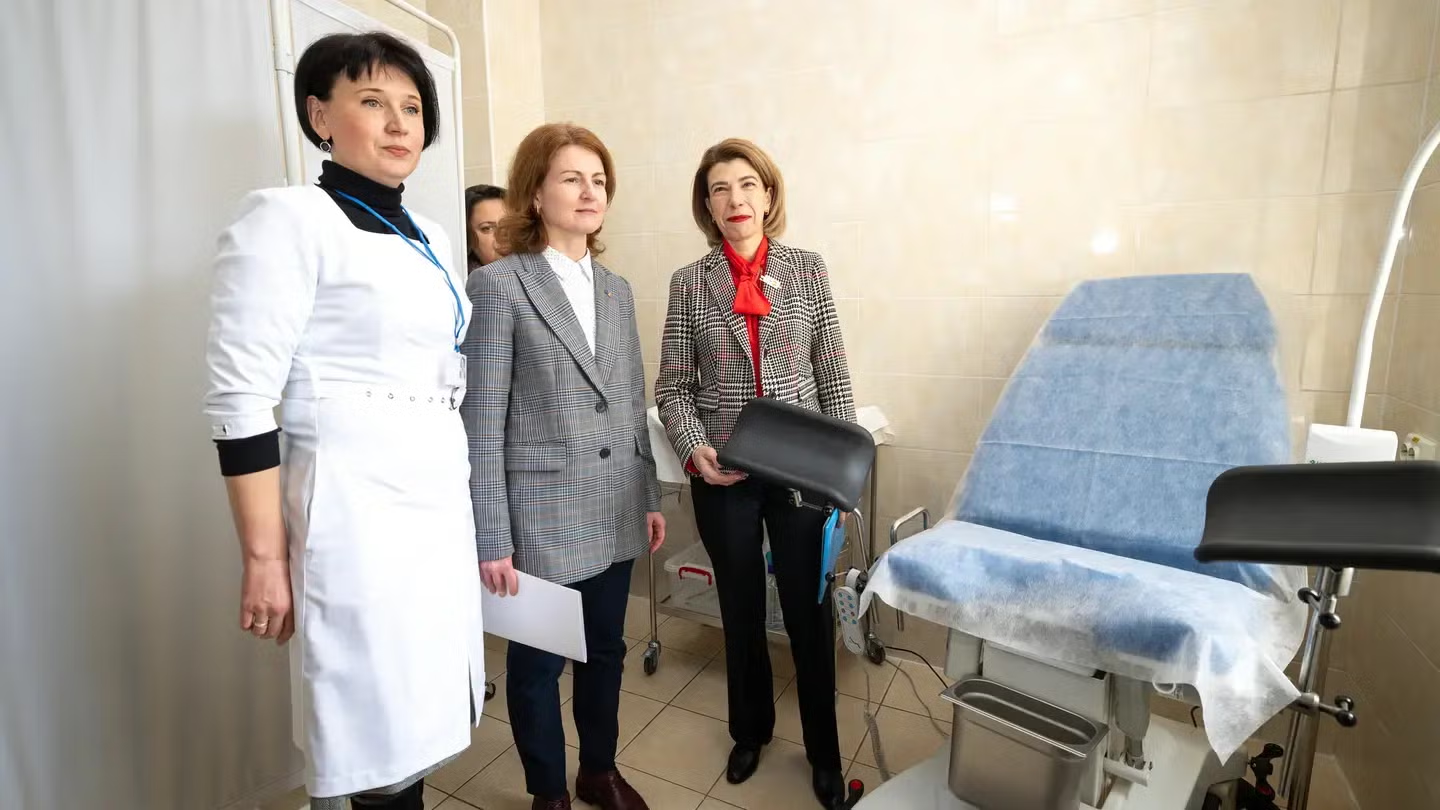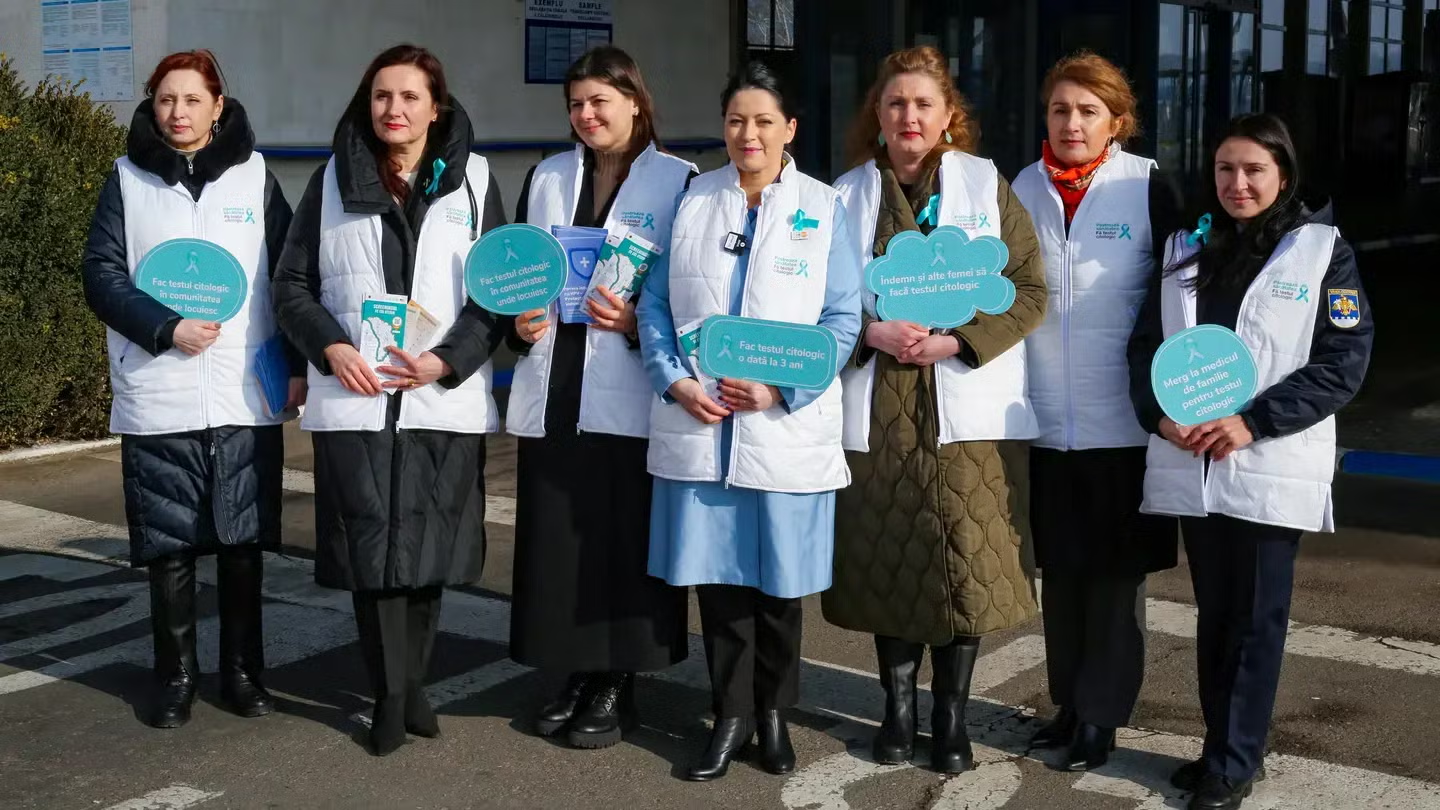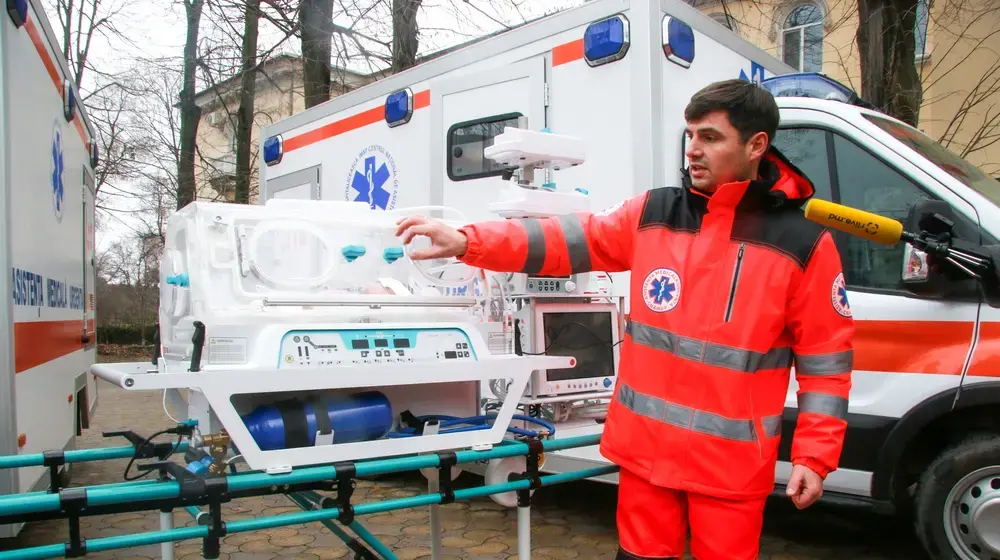“My mother-in-law convinced me to leave our town after I started to become unwell,” says Katya, who is seven months pregnant. Katya had been living in a cold basement for 11 days and had developed kidney stones. She left her husband, parents and sister behind and made the gruelling train journey alone from Lisichansk to Hmelnitsk, and then to Balti, Moldova.
“My mother-in-law must have felt that something was going to happen, because I caught the last evacuation train and the next day the train station was bombed,” she recalls, frightened by the memory of what could have been.
It took Katya two days to reach Moldova. “We rode in a plazkart sleeping car on a train, where four people occupied one seat,” she says. “It was not an easy trip for me.”
Ensuring access to care and support
On arrival in Moldova, Katya was referred to a local clinic where she received antenatal care free of charge. When the time came, she delivered a healthy baby boy at Balti Maternity Hospital, supported by skilled midwives throughout, again at no cost, thanks to an agreement UNFPA has signed with the National Health Insurance Company of Moldova. The agreement guarantees the estimated 86,000 refugees who have remained in the country access to the same comprehensive sexual and reproductive health care as local Moldovans. This includes care before, during and after childbirth for the estimated 1,500 refugee women who are pregnant and caesarean sections if needed.
UNFPA is working closely with the Government of Moldova and partners to ensure that women and girls, youth, and older people, who have been forced to flee their homes in Ukraine, can continue to access life-saving sexual and reproductive health services and information, and access psychosocial support to deal with the trauma and stress they are experiencing since their lives have been upended by the war.
A bittersweet moment
UNFPA has procured and distributed more than 10 metric tons of reproductive health supplies to hospitals and youth-friendly health clinics across Moldova, including contraceptives and life-saving maternal health medicines for the management of obstetric emergencies. Coincidentally on the day Katya gave birth to her son, UNFPA delivered supplies to Balti Maternity Hospital.
While Katya is grateful that her son is healthy, the delivery of her firstborn, who she named Matvey, was not how she and her husband had imagined, and she admits to feeling scared and lost. “My husband and I dreamed about this day for so long,” Katya says. “His father is very excited and I can’t wait for the day when he can hold our baby in his arms.”





